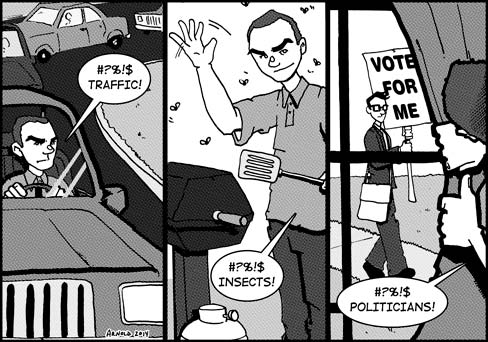More roadside dumping will be the norm in the township as Waterloo Region scales back and eventually closes the Elmira transfer station, Woolwich officials predict.
In fact, there’s already some anecdotal evidence that’s the case, as the Elmira drop-off point has been reduced to opening just two days a month, down from five days a week.
As Woolwich council discussed the issue May 13, Coun. Mark Bauman noted many residents accustomed to bringing loads of waste to the Howard Avenue location will arrive only to find the place closed. Faced with the option of taking the load home or over to the landfill site on Erb Street in Waterloo, some people may just take advantage of the many small, quiet roads along the way.
Looking to save $300,000 in the 2014 budget, regional council first reduced the Elmira transfer station to a twice-weekly schedule, opting to close operations in the other three rural townships. The region then decided to keep all of the stations open two Saturdays a month until next March.
Mayor Todd Cowan said that decision forced some scrambling, as the region had already laid off employees at the transfer stations. The move is especially inconvenient in Woolwich, where the 29,000 visits to the site last year far exceeded the 12,000 at the other three combined.
He predicted Woolwich will see more illegal dumping, recommending the township keep track of such incidents.
“It’s only going to get worse.”
Chief administrative officer David Brenneman said staff would develop a system for tracking the dumping in order to compile numbers for the region. The township will continue to press for the transfer station to remain in operation.
Savings at the region could end up as increased costs to the townships as works crews are required to clean up illegally dumped trash.
In that light, Bauman suggested the township find a way to keep it open every Saturday, noting that would be less confusing for residents.
“What does it cost to keep that open on a Saturday?” he asked.
The township could foot the bill for other Saturdays, perhaps looking at higher tipping fees to cover the cost, he added.
Brenneman said the region’s rationale for closing the transfer stations extended beyond the operating costs, as it fears having to spend millions of dollars in infrastructure upgrades at the facilities.
The township has asked Jon Arsenault, the region’s director of waste management, to provide more information at a future public meeting to discuss the situation.
In the meantime, Woolwich is braced for more dumping.
Last year, reacting to more roadside garbage linked to higher fees at the transfer station, Woolwich opted to increase the fine for illegal dumping to $1,000 from $325.









